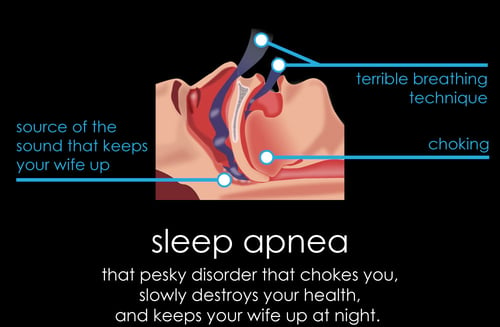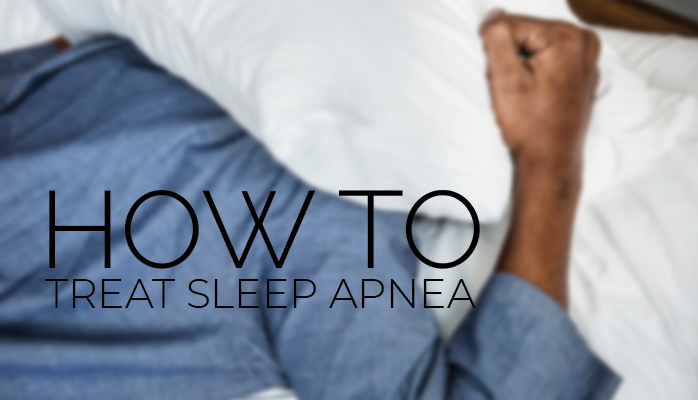What is Sleep Apnea
There are three types of sleep apnea. (1) Obstructive sleep apnea is caused when the upper airway becomes blocked during sleep. This blockage greatly reduces or completely stops airflow, and is usually accompanied by loud snoring.
(2) Central sleep apnea is a type of sleep apnea that is caused when the brain does not send signals to the respiratory muscles needed to breathe during sleep. This type of sleep apnea is not accompanied by snoring.
Sometimes, a person can have both obstructive and central sleep apneas, which is called (3) complex sleep apnea syndrome.
What Causes Obstructive Sleep Apnea
Obstructive sleep apnea happens when the back of the airway becomes blocked. This can happen due to physical obstruction or when the muscles in the back of the throat relax and close as you breathe in.

Either way, you can’t get enough air, which lowers the oxygen level of your blood and causes you to rouse briefly from sleep to open your airway. This pattern can repeat itself many times over the course of the night, essentially crippling your ability to attain the restful phases of sleep.
Sleep apnea can be caused at any age. Sleep apnea might be called a biological condition in the sense that it can be caused by a person’s:
- Physical structure; and/or
- Medical conditions.
For some people multiple factors compound to cause sleep apnea, while for other people sleep apnea might have a primary root cause. The physiological and medical causes of sleep apnea include [U.S. National Library of Medicine]:
Obesity
Persons with obesity have increased fat deposits in their necks that can block the upper airway.
Large tonsils
Large tonsils can narrow the upper airway and, if the tonsils are large enough or if there are other compounding factors, the upper airway can become blocked.
Neuromuscular conditions
A neuromuscular condition is one that affects nerves that control voluntary muscles
Heart or kidney failure
People with heart or kidney failure may have fluid build-up in their neck, blocking the upper airway.
Genetic factors
Genetic factors can affect the structure of the face or skull or block the upper airway, such as cleft lip, cleft palate, and Down Syndrome.
Unhealthy lifestyle habits such as excessive alcohol consumption and smoking can increase your risk for sleep apnea, as can family history.
Symptoms of Obstructive Sleep Apnea
The most noticeable clue that you may have obstructive sleep apnea is that you stop breathing during sleep. Of course, since you would be sleeping when you stopped breathing this would have to be observed by someone else. Unless you find that stopping breathing wakes you up.
Other symptoms of obstructive sleep apnea include [American Academy of Sleep Sciences]:
- Very loud snoring
- Gasping for air during sleep (or upon sudden waking)
- Waking with dry mouth
- Waking up with headaches
- Difficulty staying asleep
- Excessive sleepiness during the daytime
- Other complications from exhaustion, such as difficulty focusing, irritability, etc.
The best way to diagnose these symptoms is through a sleep study where you will be monitored throughout the night.
How to Treat Obstructive Sleep Apnea
Treating obstructive sleep apnea first begins with a diagnoses. Sleep specialists monitor your sleeping during a sleep study, where they can observe:
- If you stop breathing during sleep;
- How often you stop breathing during sleep;
- Whether or not these symptoms are accompanied by other symptoms such as:
- Snoring
- Lack of REM sleep
- Assess causes for obstructive sleep apnea.
Obstructive sleep apnea is generally treated with a CPAP therapy, which is extremely effective at allowing persons with sleep apnea get a restful, non-obstructed sleep. Additional regimens may also be recommended in addition to CPAP therapy.


